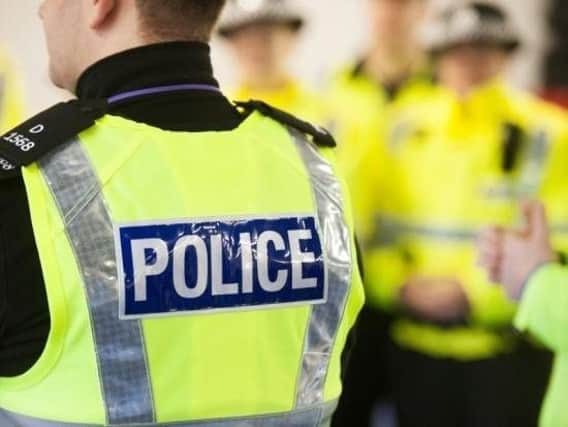Chris Marshall: Policing and justice matters should be central to election debate


Yet there are significant differences between the main parties on matters of crime and justice, from the battle over the Human Rights Act to the Tories’ proposal for a monolithic police force to protect all of Britain’s key infrastructure.
And while many of the decisions over policing and legal matters are devolved to Holyrood, Westminster retains the power to legislate in significant areas which affect us all.
Advertisement
Hide AdAdvertisement
Hide AdMuch was made of Diane Abbott’s car crash of a radio interview earlier in the campaign during which Labour’s shadow home secretary spectacularly failed to explain how much her party’s key election pledge of 10,000 extra police officers for England and Wales would cost.
While even a tiny fall in police officer numbers in Scotland can generate headlines, the situation south of the Border has been far more dramatic, with a cut of 20,000 officers since 2010, the year Theresa May was appointed home secretary.
Following last week’s suicide bombing in which 22 people lost their lives, Mrs May was repeatedly reminded of a speech she gave in 2015 in which she told the Police Federation – which represents rank and file officers in England and Wales – to stop “crying wolf” over the impact of the cuts.
In a clip which went viral on social media last week, the then home secretary had it explained to her by Channel 4 newsreader Krishnan Guru-Murthy that the point of Aesop’s fable was that, in the end, there was indeed a wolf.
Labour says its plan for 10,000 extra community officers in England and Wales will cost £300m a year by 2021/22, funded by reversing Conservative cuts to capital gains tax.
Scottish Labour reckons the plan will bring investment of £70m under the Barnett formula, which the party says it would invest in Police Scotland.
Labour says it will also attempt to restore the VAT exemption for Scottish emergency services, which was lost following the creation of the national police force and fire service in 2013.
The issue is also raised in the SNP manifesto, which was published yesterday, and has been a long-standing bone of contention for the nationalists.
Advertisement
Hide AdAdvertisement
Hide AdThe party says the Home Office’s refusal to make Police Scotland and the Scottish Fire and Rescue Service exempt from VAT has cost the taxpayer £140m since 2013, although the Scottish Government was forewarned the national bodies would be liable for the tax.
Another hot potato at Holyrood has been the Scottish Government’s controversial plans to integrate British Transport Police into Police Scotland, a move critics say is ideologically driven and not in the best interest of the travelling public.
However, the argument could become moot due to a proposal in the Tory manifesto for what the party calls a “national infrastructure police force”.
Under the plans, existing forces the Civil Nuclear Constabulary, the Ministry of Defence Police and the BTP would be subsumed into the super structure.
After setting out the plan, and without a hint of irony, the Conservatives’ Scottish manifesto then goes on in the next paragraph to criticise the SNP for centralisation and its “one-size-fits-all” approach to the police.
With just over a week to go until the vote on 8 June and following the full resumption of campaigning, the debate is returning to the issues which have dominated the past weeks and months.
But with the Manchester attack still horribly fresh in the memory, issues around policing, and justice more generally, may also play a part in helping voters make up their minds.